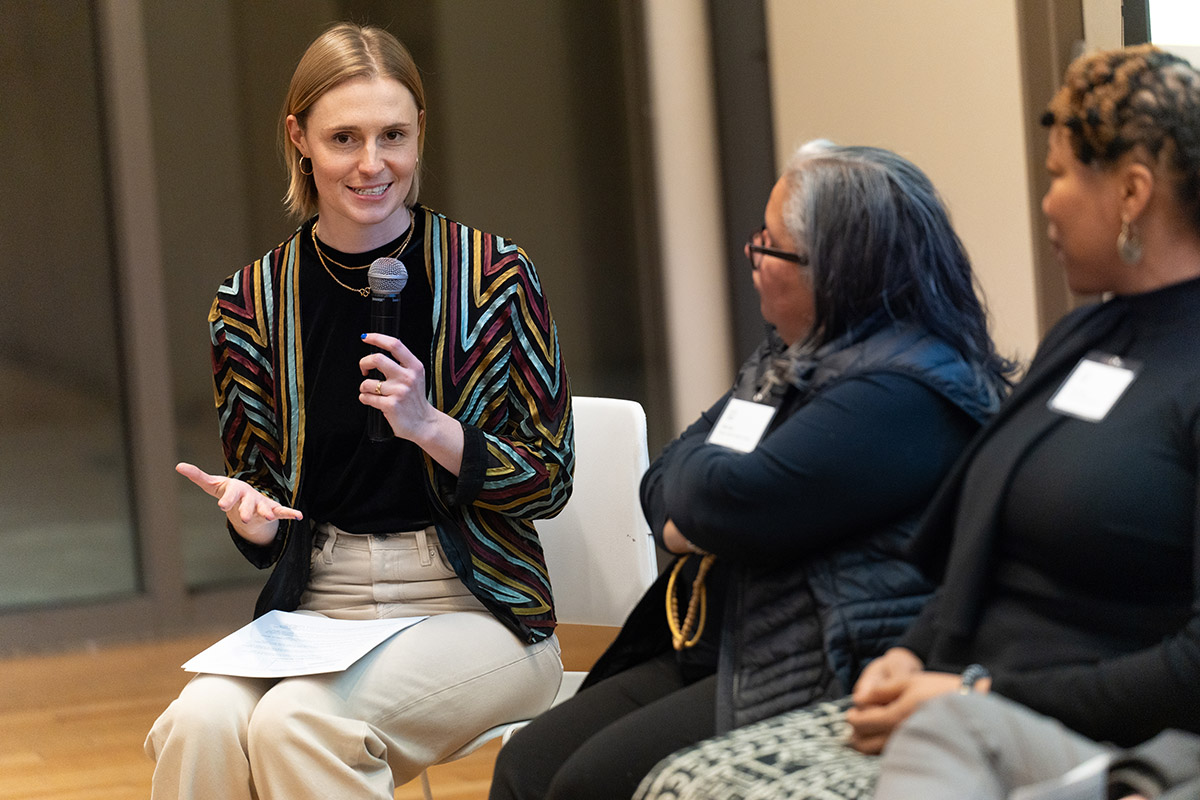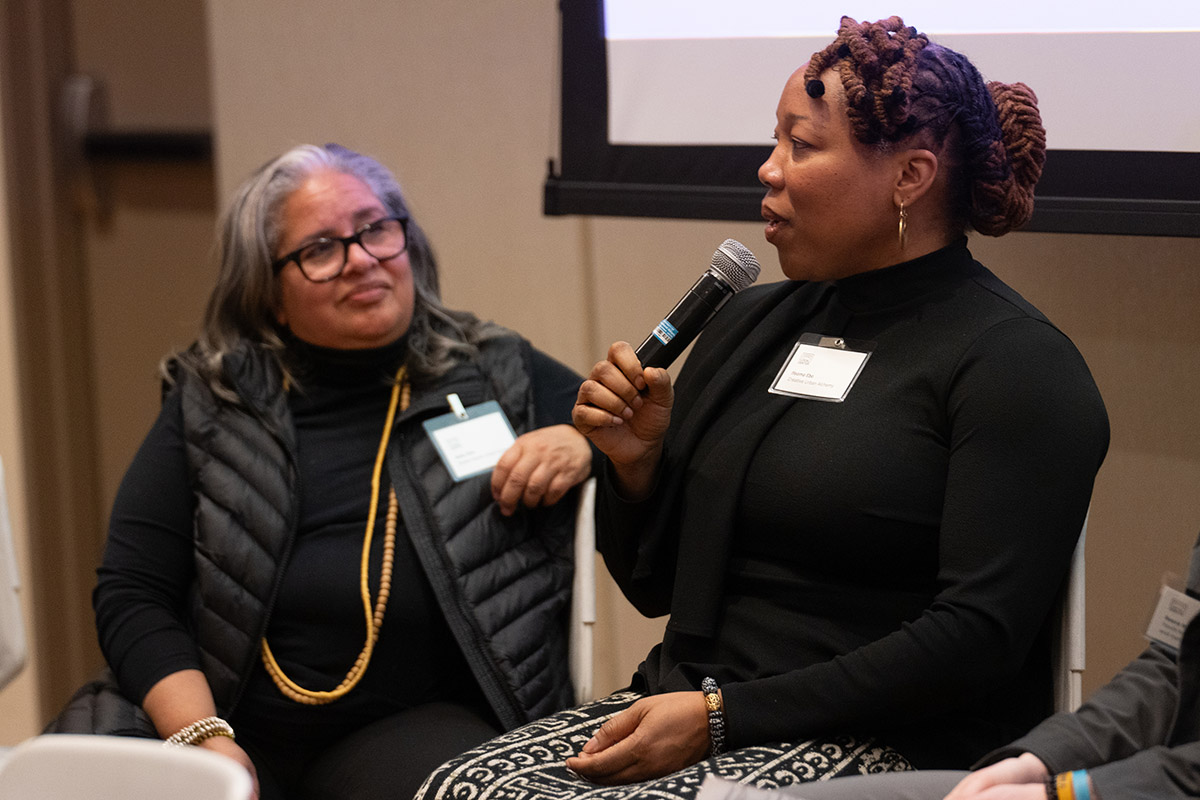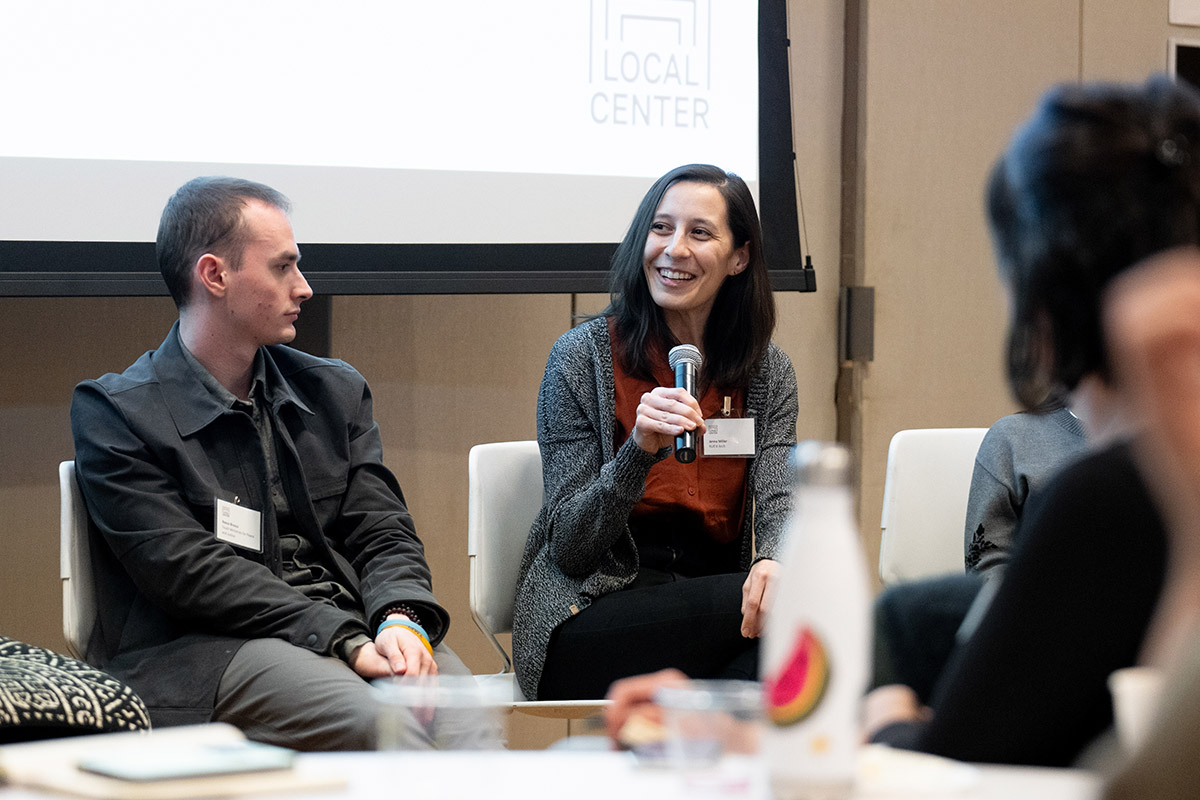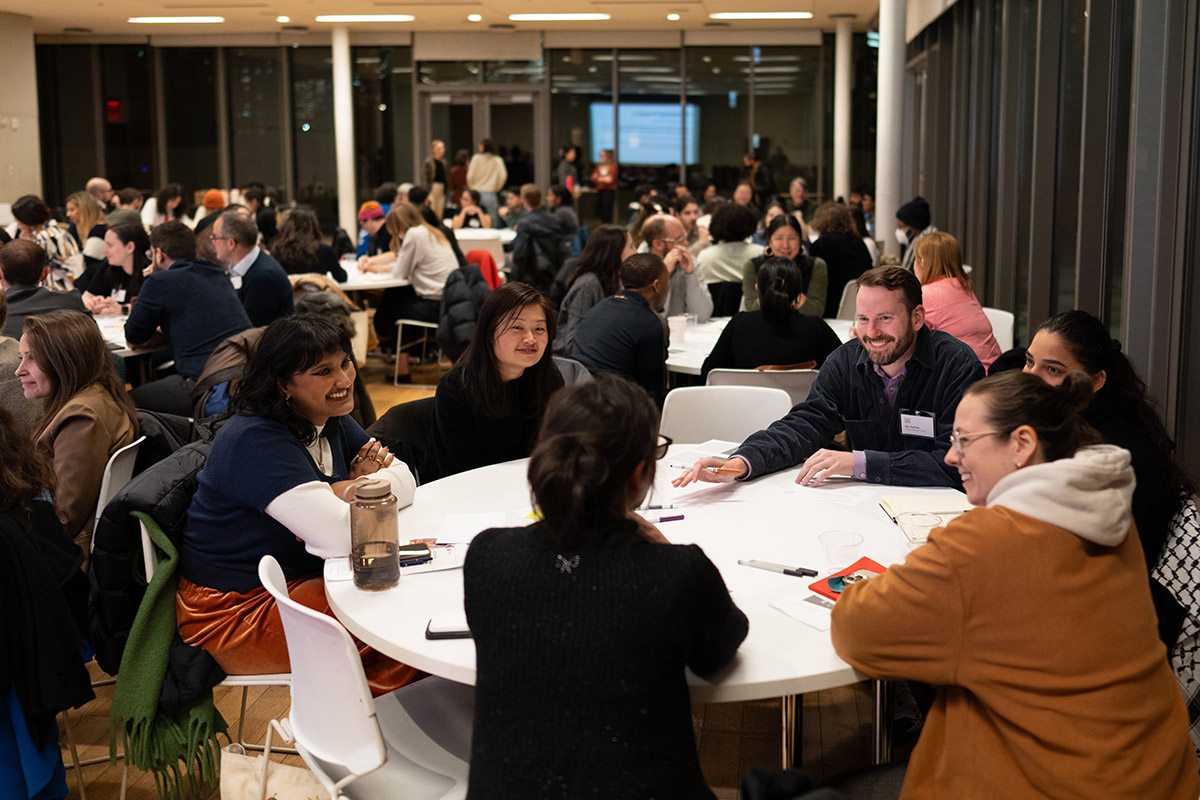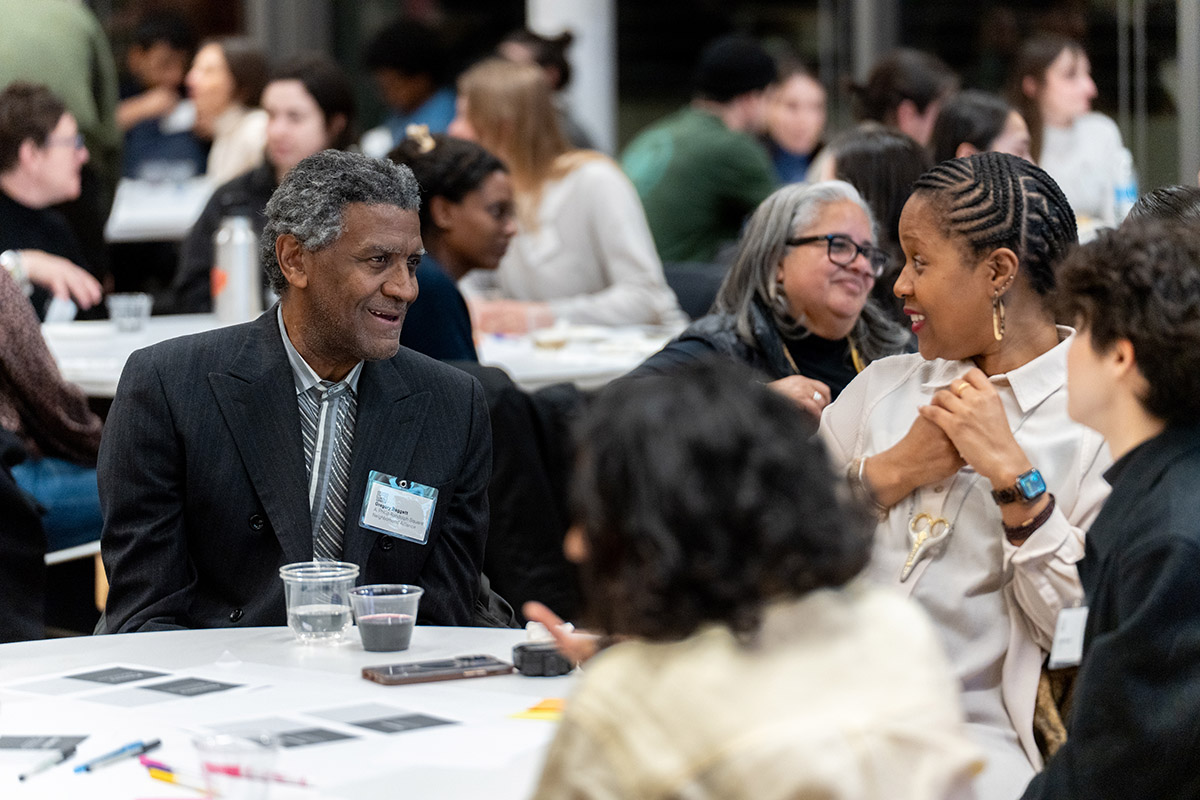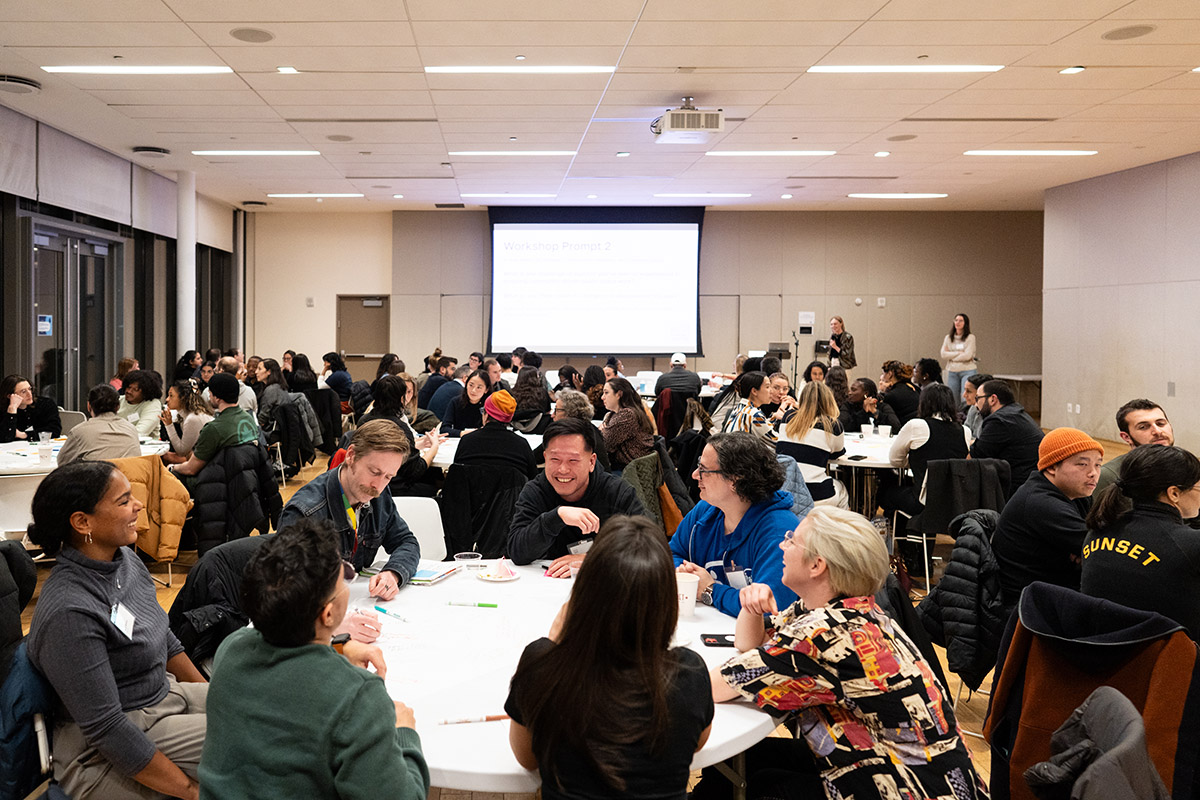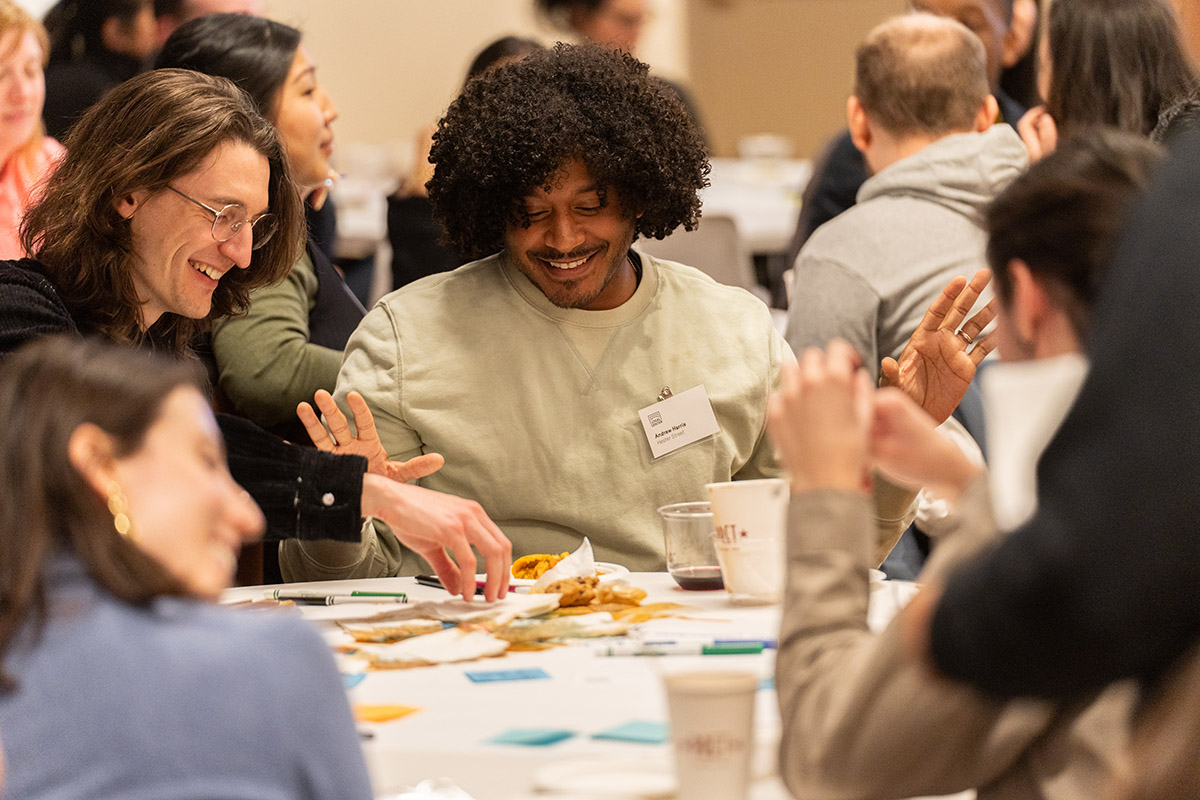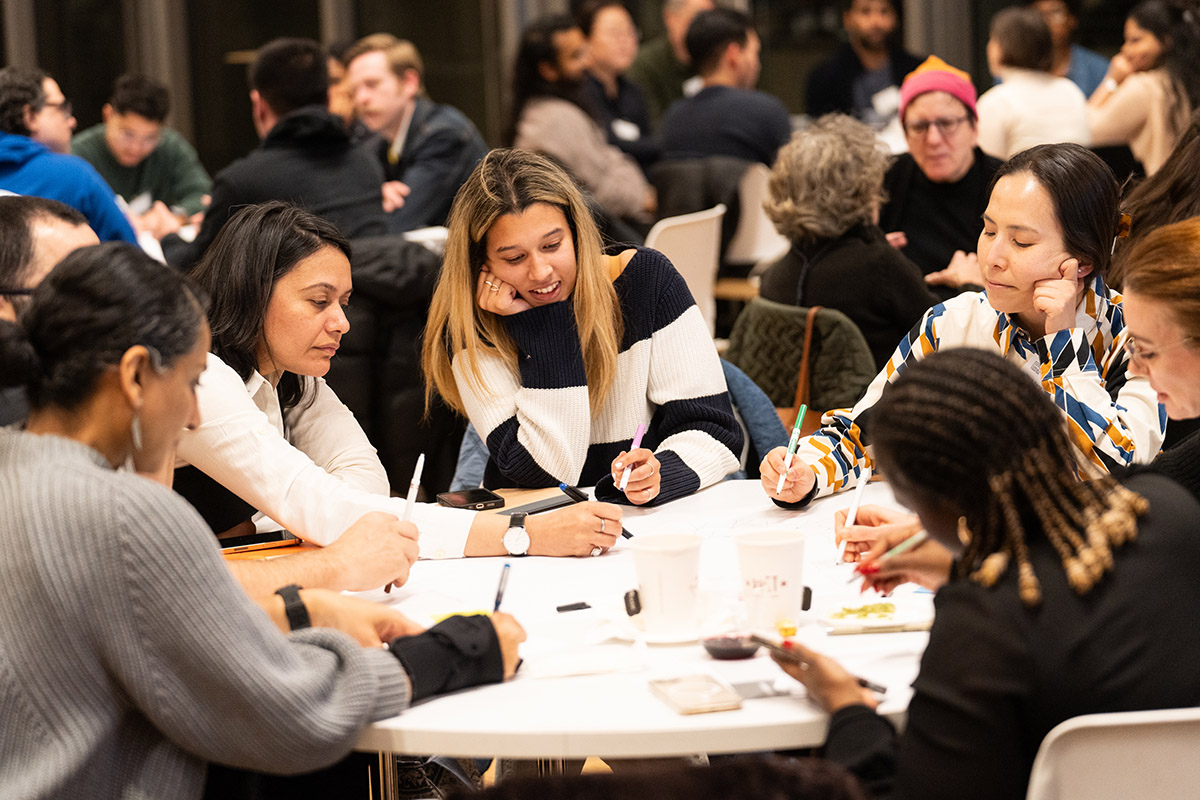
In Practice Notes, you’ll hear from Local Center teams and our own staff about what we’re learning as we support community-led design projects across New York City.
By Martha Snow
A few weeks ago, our Local Center teams came together on a chilly Wednesday afternoon, over empanadas, coffee and cookies, to discuss their projects to reclaim public spaces across the city this summer. We started out with just the teams, sharing slide decks with photos and renderings in progress. Then, we invited in our broader network — designers, planners, organizers, community leaders, and more for a panel discussion and workshop.
Since they started their work together last June, the teams have been doing wonderful things – creatively engaging with their neighbors, assembling coalitions of partner organizations and artists, and building the groundwork for their projects to come to life. But this is also a moment where they are facing the real challenges that come with developing community-driven work in public space.
In planning this evening, we intentionally created a program in the middle of our teams’ projects, where things may be feeling challenging or unclear, to take a moment to pause and take stock, connect with others, and look for solutions together. Structuring in time to not have the answers may seem counterintuitive, especially when time pressure is often at the forefront of our minds. Progress is often measured by advancement along a predefined trajectory. But I believe we need to also celebrate different measures of progress, like how we are able to adapt to meet the moment or recognize emergent circumstances, or the ways we build trust to rely on each other to solve problems.
During the panel discussion, I asked a few team members to reflect on moments that they had to adapt, or change course, prefacing to the audience, with a laugh, that we were welcoming them into the messiness of it all. As I looked around the room, I saw eager nods of recognition and relief, as if people were saying yes, this work is hard! And nonlinear! Thank goodness someone said it out loud!
The teams met the moment with generosity and grace, sharing their ideas with each other while honoring bigger challenges. One team reflected on the challenges of engaging with their neighbors who are facing pressing concerns like housing affordability, food insecurity, access to childcare, and more. Another recognized the difficulties that emerging designers face in building sustainable small businesses that do community-driven work.
After the panel, we sat around big round tables, scribbling reflections and drawings on big pieces of paper. Participants reflected on their own journeys and what they think needs to change to enable more community-driven public space work in the city.
Reflecting on our role, I think it’s powerful for us, as an institution and convening organization, to put a stake in the ground and say: we are putting value on the type of design and problem solving that doesn’t happen over a 15-minute Zoom call, but happens together, in our neighborhoods. We are also equally valuing the people that have the courage to say, “We don’t know the answer, let’s work through it together,” as those who come with polished solutions or shiny renderings.
Something we hope to do is cultivate spaces where people can connect, find purpose, and cultivate joy. When we ended the night with raucous applause and celebration, I felt all those things in the room. And I’m thrilled to hear that people that connected for the first time that evening are still in touch, scheming ways to work together. I hope you’ll join the next one!
Martha Snow is the Director of Community Design at Urban Design Forum.
